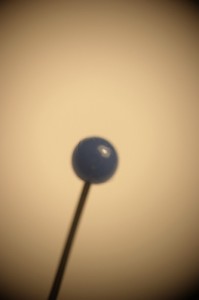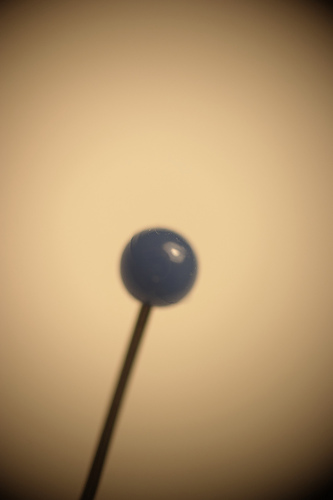Charlie Sheen is back in the news, and this time the media seems downright puzzled with his latest comments, they’re almost ambivalent about commenting on them. The stories are a mixed bag, but this seems to be the quote that has most people shocked and appalled:
In the interview with former ESPN anchor Patrick, Sheen acknowledged that he’s had “some problems lately” and said staying away from crack cocaine is good advice unless a person can “manage it socially.” Asked if he could, Sheen replied, “Yeah, yeah, but that kinda blew up in my face … like an exploding crack pipe.” (source: huffpo).

While it seems that most journalists are happy to simply arrange all of Sheen’s latest quotes in a manner which simply portrays him as unstable, without too much analysis or commentary of their own, Dr Drew Pinhead is more than happy to step up to the plate and tear him apart – revealing the distorted thinking of the recovery culture. Drew insists that this quote is proof that he’s in denial, I disagree. It seems to me like an admission of failure, a lucid comment, and something one could use to help develop motivation. He said that social crack use wouldn’t work for him, you’d think that would delight the likes of Drew, but he refuses to look at the substance of the comment; he only hears “social crack use” and his tiny brain shuts down. While most people are starting to realize that Drew can easily be dismissed as a sensational opportunist at this point, it’s still worth our time to pay attention to his attitude. The way he thinks is representative of how most rehab professionals think. After basically saying that all addicts are delusional liars, he gives us this gem of a quote which sums up how most addiction counselors approach their jobs:
“To talk to an addict about why they do what they do, is a mistake”
How can you approach helping someone with a behavioral problem when you consider them a pathological liar by default, and think it’s a mistake to talk to them about “why they do what they do”? The “why” is the key point – it can point us to solutions by revealing unmet needs and desires in the substance users life – needs that we can encourage them to address and teach them how to serve – but the likes of Dr Drew just don’t get this. Which brings us to another comment by Sheen which Drew and Jane Velez-Mitchell unsurprisingly miss the point of. Sheen recalled being sober for 5 years, and being alcohol free for 12 years, and then says that being sober wasn’t for him and that he was bored. Boredom is a reason that motivates many people to use substances. Could we talk about that? Could we talk about living a more exciting and fulfilling life? Apparently not, because these two jerks jump right to saying that Sheen is defiant, in denial, “still on the side of being an addict”, “not giving recovery a chance”, and so on. Unfortunately, as I said before, the reaction of these two is representative of the recovery culture as a whole, and the attitudes of counselors working in the rehab/treatment industry. Often, when talking to people who have struggled for a long time with substance use problems, you may ask them “why”, and they say “I don’t know” – and that doesn’t give you anywhere to go. But here he is volunteering a powerful “why” and these people dismiss it. It’s truly irresponsible for people like Dr Drew to act as if they have a solution, and then behave so incompetently. Eventually, Drew says the boredom may have represented depression back when Charlie was “in recovery”, and he could be right, but that was then, and this is now – and right now, Drew is damning Sheen, rather than offering solutions that tap into where he is now. Here’s the video of Dr Drew, definitely worth a watch, if only to witness the full madness of the “recovery” elite:
Meanwhile, Maia Szalavitz addressed some of the criticisms of Sheen quite deftly on her blog over at TIME (Can You Use Crack Socially?), in which she cited the same study I covered recently which shows that indeed, some people use crack recreationally (Reality Check – Most Don’t Become Addicted). Not that I’m suggesting Charlie use crack recreationally, but just to say, there is some truth to what he’s said, so beyond the quote being misunderstood and taken out of context, it still shouldn’t be so shocking if you know the facts. Indeed, most people who use crack don’t end up using it addictively.
Now I don’t know what will become of Charlie Sheen, he could die today, or he could live happily for another 50 years – he is an individual who will make his own choices. But his story and the public reaction is educational. He obviously displays some insight into his behavior, yet he’s completely turned off by the idea of staying in treatment, and he has also said that he just wants to get back to work. When we see the attitude of Dr Drew, the face of the recovery culture, we can see why Sheen is uninterested in “sobriety” and treatment. These people fail to connect, seek immediately to label their clients as sick & diseased, and then immediately dismiss everything they say as denial, distorted thinking, and defiance.
I suspect that Charlie has never been to a non-12-step program, he has always been told that his only options are either abstinence or excessive uncontrolled binge use – this may explain why when he goes back, he goes hard – he’s been taught to behave this way by the very people charged with helping him.

I used to like Dr. Drew, because of how classy he is, but not all answers are from the med school.